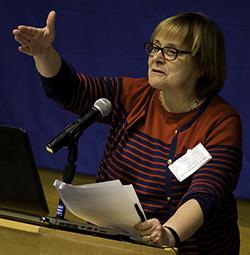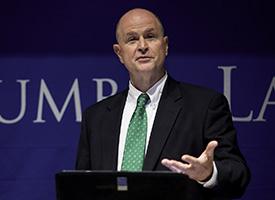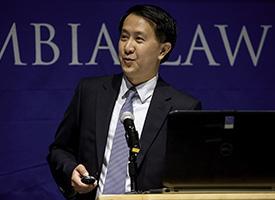Copyright Outside the Box
New York, October 21, 2015—In recent years, copyright protection has been sought for tattoos, gardens, conceptual art, computer-generated creations, and other nontraditional works that challenge accepted notions of intellectual property. On Oct. 2, Columbia Law School’s Kernochan Center for Law, Media, and the Arts hosted a symposium to address the evolution in the field and to analyze what constitutes authorship in the 21st century.
| June M. Besek, executive director of the Kernochan Center for Law, Media, and the Arts at Columbia Law School, introduced the event. |
| Robert Kasunic, left, of the United States Copyright Office, and Joseph Liu, a professor at Boston College Law School, were the event's keynote speakers. |
The Kernochan Center for Law, Media and the Arts was established to contribute to a broader understanding of the legal aspects of creative works of authorship, including their dissemination and use. The center has encouraged the development of instruction at the Law School in topics such as intellectual property, copyright, trademarks, the regulation of electronic media, and problems arising from new communications technologies.


